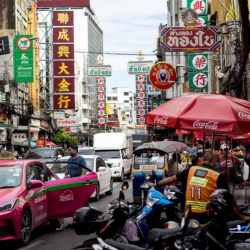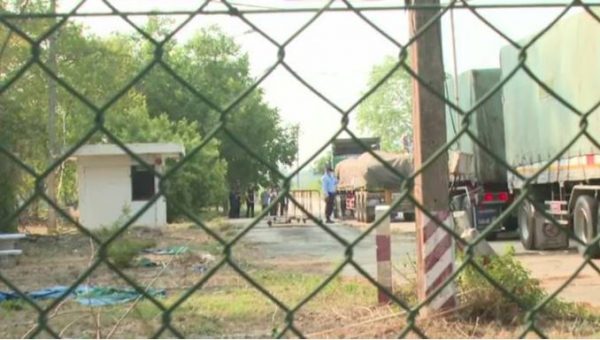Civil participation in southern peace talks urged

Political analysts and members of civil society in southern Thailand have called for greater participation by academics and representatives of local communities in the peace process in the trouble-plagued region.
They expressed doubts on the ability of the new peace talks team appointed by Prime Minister Srettha Thavisin early this week to make a breakthrough in its negotiations with the armed insurgents who have been wreaking havoc in the three southern provinces of Pattani, Yala and Narathiwat for almost two decades.
“They have tried this approach before and it did not work. And they are doing it again,” commented Ekkarin Tuansiri of the Political Science Faculty of Prince of Songkhla University (Pattani Campus), referring to the failure of three previous peace talks teams to bring about tangible results in their talks with the separatist groups.
Prime Minister Srettha on Monday appointed Chatchai Bangchuad, deputy secretary general of the National Security Council, to head the government’s new peace talks team tasked with finding a solution to end the violence in the restive south.
The negotiation team also includes the secretary-general of the Southern Border Provinces Administrative Centre, as well as representatives of the Foreign Affairs and Justice ministries and the Internal Security Operations Command.
The new team is entrusted with continuing negotiations with the Barisan Revolusi Nasional (BRN) and other armed insurgent groups. With Malaysia acting as the facilitator, negotiations between Bangkok and the BRN have been on hold since February, after both sides reached a consensus on an initial roadmap towards a peace agreement.
In interviews with Thai PBS, critics in southern Thailand, however, questioned the absence of members of the civil society, academics and representatives of local communities in the new peace talks team.
Ekkarin of Prince of Songkhla University said without local participation, the peace process is unlikely to make a breakthrough.
“Local people need to have a say in the peace process in order to create a sense of belonging…In fact, the peace process should engage not only people in the region, but people representing the whole society,” he said and suggested that instead of a talks team dominated by security people, there should be a special peace team comprising local academics, members of civil society and community to spearhead the peace process.
His view is shared by Mansour Salah, chairman of a civil network in southern Thailand, who also called for more civil participation in the peace process.
He said the situation in the region should not be viewed only through security lens. “What is equally important is development for the region,” he said.
“Peace is sustainable when it’s accompanied by development,” he said.
Pongsak Yingchoncharoen, the mayor of Yala City, expressed support for the continuation of the peace process but emphasized the need for power decentralization.
“They need to talk with an open mind…But what the government needs to do is to decentralize power so that people who want to see peace can envisage what is ahead for them,” he said.
In a post on his Facebook page on Tuesday, Malaysian Prime Minister Anwar Ibrahim said he discussed with Prime Minister Srettha the situation in southern Thailand during which the Thai leader expressed his appreciation for the role played by Malaysian in facilitating the peace talks. The two leaders met on the Thai-Malaysian border on Monday to discuss a wide range of areas of bilateral cooperation.
Anwar reiterated Malaysia’s commitment in helping efforts toward peace in Thailand’s southern region, with Gen Zulkifli Zainal Abidin, a former army chief of Malaysia, acting as the facilitator for the peace talks process which began during the Yingluck administration in 2013.






